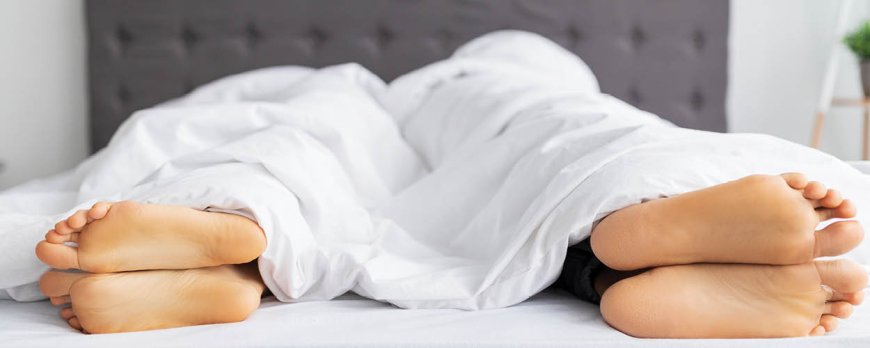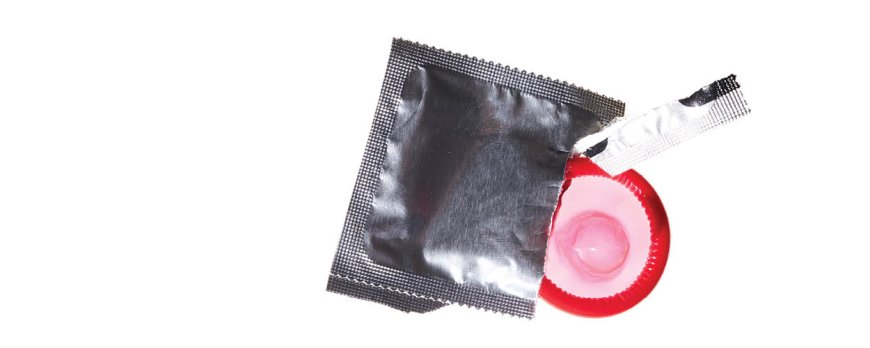What causes horniness in males?
Explore the answer: What causes horniness in males? Uncover hormonal, psychological, and environmental factors playing roles in male arousal.

What Causes Horniness in Males?
Understanding the causes of horniness in males is essential in exploring the complex nature of male sexual desire. The factors that contribute to male arousal can vary and are influenced by a combination of biological, psychological, and social factors. Stereotypes about male sex drive, such as men thinking about sex all the time or masturbating more than women, are not necessarily true. Hormones, particularly testosterone, play a significant role in male sex drive. Other factors that can affect libido include age, mental health, stress levels, physical fitness, and relationship dynamics. Some medical conditions, such as bipolar disorder, dementia, persistent genital arousal disorder, rabies, and Klüver-Bucy syndrome, can also lead to an overactive sex drive. In some cases, a high sex drive may be considered compulsive sexual behavior or sexual addiction, which may require professional help. It is important to remember that what is considered a "normal" sex drive varies for each individual, and seeking help from a healthcare professional is recommended if one's sex drive is causing distress or interfering with daily functioning.
Key Takeaways:
- The causes of horniness in males are influenced by biological, psychological, and social factors.
- Hormones, particularly testosterone, play a significant role in male sex drive.
- Age, mental health, stress levels, physical fitness, and relationship dynamics can all affect libido.
- Some medical conditions can lead to an overactive sex drive.
- Compulsive sexual behavior or sexual addiction may require professional help.
Biological Factors Affecting Male Horniness
Hormonal factors, such as testosterone levels, significantly influence a man's sexual desire and play a key role in causing horniness. Testosterone is a hormone produced mainly in the testicles, and its levels tend to be higher in men compared to women. This hormone is responsible for regulating various aspects of male sexual function, including libido and the production of sperm. When testosterone levels are within a normal range, it helps maintain a healthy sex drive. However, fluctuations in testosterone levels can impact a man's horniness, leading to changes in sexual desire.
In addition to testosterone, other physiological triggers can also contribute to male horniness. For example, certain neurotransmitters, such as dopamine, play a role in regulating sexual arousal. Dopamine, often referred to as the "pleasure hormone," is associated with feelings of reward and motivation, including sexual pleasure. When dopamine levels are released in response to sexual stimuli, it can enhance feelings of horniness.
Factors influencing male arousal:
- Hormonal sources, primarily testosterone levels
- Neurotransmitters, such as dopamine
- Physiological changes in the body
Understanding the Role of Testosterone
Testosterone is not only responsible for the development of male sexual characteristics during puberty but also plays a crucial role in maintaining sexual desire throughout adulthood. Low testosterone levels can lead to a decrease in libido, while higher levels can contribute to a heightened sex drive. However, it's important to note that testosterone is just one component of the complex interplay between biological, psychological, and social factors that influence male horniness.
Other Physiological Triggers
In addition to testosterone and neurotransmitters, various physiological changes in the body can affect a man's sexual arousal. These changes may include increased blood flow to the genitals, heightened sensitivity, and the activation of specific brain regions associated with sexual pleasure. Engaging in physical activity, maintaining a healthy diet, and managing stress levels can all positively impact physiological factors related to male horniness.
While biological factors are important in understanding male horniness, it's essential to recognize that psychological and social factors also play significant roles. The next section will delve into these aspects and how they influence male sexual arousal.

Psychological Factors Influencing Male Sexual Arousal
Besides biological factors, psychological factors also contribute to male horniness, with mental health, stress, and relationship dynamics playing crucial roles. While hormones like testosterone play a significant role in male sex drive, psychological factors can greatly influence arousal and desire.
Mental health: Psychological factors, such as depression, anxiety, and mood disorders, can impact male sexual desire. Conditions like depression can lead to a decrease in libido, while anxiety or stress can affect both arousal and performance. It's important to address any underlying mental health concerns in order to maintain a healthy sex drive.
Stress: High levels of stress can have a negative impact on male horniness. Stress can disrupt hormone levels, increase fatigue, and decrease libido. Finding healthy ways to manage stress, such as practicing relaxation techniques or engaging in regular exercise, can help maintain a healthy sex drive.
Relationship dynamics: The quality of a relationship and the level of emotional connection can also influence male sexual desire. Factors such as trust, communication, and intimacy play a vital role in maintaining a satisfying sex life. Relationship issues, lack of emotional connection, or unresolved conflicts can contribute to a decrease in libido.
It's important to remember that every individual is unique and may have different psychological factors influencing their sexual desire. If concerns about horniness are causing distress or interfering with daily functioning, seeking help from a healthcare professional or a therapist specializing in sexual health is recommended.
Social and Environmental Influences on Male Arousal
In addition to biological and psychological factors, social and environmental influences can shape male arousal and contribute to feelings of horniness. These external factors play a significant role in determining an individual's level of sexual desire and arousal. Understanding the impact of social and environmental influences is crucial in comprehending the complexities of male horniness.
Social norms and cultural attitudes towards sexuality can greatly influence male arousal. Societal expectations, such as the portrayal of sex in media and entertainment, can shape perceptions of sexual desire in men. Additionally, cultural beliefs about masculinity and sexuality can impact how men express and experience their sexual desires.
Environmental factors also play a role in male arousal. The physical environment, including the presence of a partner, romantic atmosphere, or stimulating surroundings, can increase feelings of horniness. On the other hand, factors like stress, anxiety, or busy schedules may decrease sexual desire in males.
It is important to recognize that individuals vary in their responses to social and environmental influences, and what may impact one person's arousal may not have the same effect on another. The interplay of biological, psychological, social, and environmental factors is complex and multifaceted, contributing to the individual experiences of horniness in males.

Age-related changes in male sexual desire
As men age, changes in hormone levels and overall health can lead to fluctuations in sexual desire, potentially affecting feelings of horniness. Testosterone, the primary male sex hormone, naturally declines with age. This decrease in testosterone levels can result in a diminished libido and reduced frequency of sexual thoughts or fantasies. However, it is important to note that not all men will experience a significant decline in sexual desire as they age.
Factors influencing age-related changes in male sexual desire:
- Hormonal changes: The decline in testosterone levels can impact sexual desire, but other hormonal changes, such as alterations in cortisol and thyroid hormone levels, can also play a role.
- Physical health: Conditions such as cardiovascular disease, diabetes, obesity, and chronic pain can affect sexual desire and functioning. Additionally, certain medications used to manage these conditions may have side effects that impact libido.
- Psychological factors: Stress, depression, anxiety, and other mental health issues can contribute to changes in sexual desire. Relationship changes, such as the loss of a partner or decreased intimacy, can also influence horniness.
- Lifestyle factors: Poor sleep quality, lack of exercise, excessive alcohol consumption, and smoking can all negatively impact sexual desire and overall sexual health.
It is essential to approach age-related changes in sexual desire with understanding and open communication. While some men may experience a decline in horniness, others may maintain a healthy sex drive throughout their lives. If concerns about changes in sexual desire arise, it is recommended to consult with a healthcare professional who can provide personalized guidance and appropriate interventions.
Medical Conditions and Hypersexuality
Certain medical conditions can disrupt the normal regulation of sexual desire in males, leading to an increased sense of horniness and hypersexuality. These conditions can have a profound impact on an individual's life, causing distress and interfering with daily functioning. Here are some medical conditions that are known to affect male sex drive:
- Bipolar disorder: Individuals with bipolar disorder may experience periods of hypersexuality during manic episodes, where they have an intense need for sexual activity.
- Dementia: In some cases, individuals with dementia may exhibit hypersexuality as a symptom of the disease, which can be challenging for both the individual and their caregivers to manage.
- Persistent genital arousal disorder: This rare condition is characterized by persistent and uncontrollable genital arousal in the absence of sexual stimulation, leading to a heightened sense of horniness.
- Rabies: Although rare, rabies can cause neurological symptoms that may include hypersexuality, resulting in an increased sex drive and inappropriate sexual behavior.
- Klüver-Bucy syndrome: This neurological disorder can lead to a range of behavioral changes, including hypersexuality and an increased interest in sexual activities.
It's important to note that hypersexuality may also be a symptom of compulsive sexual behavior or sexual addiction. In these cases, individuals may have an excessive and uncontrollable sex drive that requires professional help and intervention to manage. If you or someone you know is experiencing an overactive sex drive due to a medical condition or compulsive behavior, seeking support from healthcare professionals is essential. They can provide guidance, diagnosis, and appropriate treatment options to address the underlying causes of hypersexuality.
Remember, sexuality and sexual desire can vary greatly from person to person, and what may be considered a "normal" sex drive differs for each individual. If concerns about horniness are causing distress or interfering with daily life, it's important to reach out for professional help and support. Healthcare professionals are trained to understand the complexities of sexual desire and can provide valuable assistance in managing and addressing any issues that may arise.
Compulsive Sexual Behavior and Sexual Addiction
In some cases, a high sex drive may be classified as compulsive sexual behavior or sexual addiction, necessitating intervention and support from healthcare professionals. These conditions involve a persistent and uncontrollable urge to engage in sexual activities, which can have a detrimental impact on an individual's personal life, relationships, and overall well-being.
Compulsive sexual behavior is characterized by an overwhelming preoccupation with sexual thoughts, fantasies, and behaviors that interfere with daily functioning. Individuals with this condition may experience an inability to control their sexual impulses, leading to excessive masturbation, frequent casual encounters, or engagement in risky sexual behaviors. They may also feel a sense of shame, guilt, or distress due to their inability to resist these urges.
Sexual addiction, on the other hand, involves a compulsive and uncontrolled pattern of sexual behaviors that resembles an addiction to substances, such as drugs or alcohol. This condition is often accompanied by a loss of control, leading to an increasing need for more intense or frequent sexual experiences in order to achieve the same level of satisfaction. Individuals with sexual addiction may neglect their responsibilities, experience relationship problems, and suffer from feelings of emptiness or despair.
Seeking Support and Treatment
- If you or someone you know is struggling with compulsive sexual behavior or sexual addiction, it is important to seek help and support from healthcare professionals who specialize in sexual health and addiction.
- Therapeutic interventions, such as cognitive-behavioral therapy, group therapy, and medication, may be recommended to address the underlying causes and help individuals develop healthier patterns of sexual behavior.
- Support groups and online communities can also provide a safe space for individuals to share their experiences, gain insight, and receive guidance from others who have faced similar challenges.
- Remember, there is no shame in seeking help for concerns about your sexual behavior. Qualified professionals can provide the necessary support and resources to help you regain control of your sexual impulses and improve your overall well-being.
Understanding the complex nature of high sex drive and recognizing when it may cross the line into compulsive sexual behavior or sexual addiction is crucial in order to seek appropriate help and support. By addressing the underlying factors contributing to these conditions, individuals can regain control of their sexual behaviors and live a healthier, more fulfilling life.

Understanding variations in male sex drive
It is important to recognize that there is a wide range of normal sexual desire among males, influenced by a combination of genetic, environmental, and personal factors. Each individual's sex drive is unique and can be influenced by a variety of factors that interact in complex ways.
Genetics: Genetic factors can play a role in determining an individual's baseline level of sexual desire. Some individuals may have naturally higher or lower levels of sex drive due to their genetic makeup.
Environment: Environmental factors, such as upbringing, cultural influences, and societal norms, can also shape an individual's sexual desire. Cultural attitudes towards sex and sexuality can impact how males perceive and express their sexual desires.
Personal factors: Personal experiences, values, and preferences can significantly influence an individual's sex drive. Factors such as stress levels, mental health, physical fitness, and relationship dynamics can all play a part in determining one's level of sexual desire.
It is essential to understand that there is no "one-size-fits-all" when it comes to male sex drive. What may be considered a normal or healthy level of sexual desire for one person may differ from another. It is crucial to avoid making assumptions or perpetuating stereotypes about male horniness and instead focus on individual differences and the multitude of factors that can influence sexual desire.
Seeking help for concerns about horniness
If feelings of horniness are causing distress or affecting daily life, it is recommended to consult with a healthcare professional who can provide guidance and support. It is important to remember that a high sex drive is not necessarily a cause for concern, as what is considered "normal" varies for each individual. However, if the level of horniness is causing significant distress or interfering with relationships or other aspects of life, it may be beneficial to seek professional help.
A healthcare professional can help determine if there are underlying medical conditions that may be contributing to an overactive sex drive. Some medical conditions, such as bipolar disorder, dementia, persistent genital arousal disorder, rabies, and Klüver-Bucy syndrome, can affect male sexual desire. By identifying and treating these conditions, it may be possible to manage and alleviate excessive horniness.
Additionally, a healthcare professional can provide guidance on managing psychological factors that might be influencing male arousal. They can offer strategies for coping with stress, improving mental health, and addressing any relationship or emotional issues that may be impacting sexual desire. The support and guidance of a healthcare professional can be invaluable in navigating concerns about horniness and finding appropriate solutions.
When to seek help
- Feelings of horniness that are distressing or interfering with daily life
- Concerns about an overly high or compulsive sex drive
- Unexplained or sudden changes in sexual desire
- Presence of medical conditions that may impact male sex drive
Remember, it is essential to approach the topic of horniness with openness and honesty, both with oneself and with healthcare professionals. By seeking help, individuals can gain a better understanding of their own arousal patterns and develop strategies to manage and maintain a healthy sex drive.
The impact of stereotypes on male horniness
Stereotypes about male sex drive can create unrealistic expectations and misconceptions, and it is essential to challenge and understand the individual nature of horniness. While it is true that hormones, particularly testosterone, play a significant role in male arousal, the idea that all men think about sex constantly or have a higher sex drive than women is not supported by factual data.
There is a wide variation in male sex drive, influenced by a complex interplay of biological, psychological, and social factors. Age, mental health, stress levels, physical fitness, and relationship dynamics can all affect libido. It is important to recognize that what is considered a "normal" sex drive varies for each individual. Some men may have a higher or lower sex drive compared to others, and that is perfectly normal.
To better understand and address issues related to male horniness, it is crucial to challenge stereotypes and embrace a more nuanced understanding of sexuality. Instead of relying on generalizations, it is crucial to consider the individual experiences and needs of each person. Stereotypes can create unrealistic expectations and pressure, leading to feelings of inadequacy or distress. Open and honest communication, both with oneself and with partners, is key to maintaining a healthy and fulfilling sexual life.
Cultural and societal factors influencing male sexual desire
Cultural and societal factors play a significant role in shaping perceptions of horniness in males, influencing attitudes and expectations surrounding male sexual desire. These factors can vary greatly across different cultures and societies, leading to diverse views on male arousal and sexuality. The way sex is portrayed and discussed in the media, for example, can greatly impact how men perceive and express their sexual desires.
In many societies, there is a tendency to associate masculinity with high sexual desire and performance. Men may feel pressure to conform to these expectations, leading to a heightened sense of horniness. On the other hand, cultural norms and taboos surrounding sex can also suppress male sexual desire, making it difficult for men to openly express their needs and desires.
Religious and moral beliefs can also influence perceptions of male horniness. Some religions promote abstinence or view sex as solely for procreation, which may lead to feelings of guilt or shame surrounding sexual desires. Additionally, societal attitudes towards gender roles and sexuality can impact male arousal. Traditional gender expectations may place an emphasis on men initiating sexual activity, which can create pressure and influence perceptions of horniness.
Factors influencing cultural and societal influences on male sexual desire:
- Media portrayal of sex and male sexuality
- Cultural taboos and attitudes towards sex
- Religious and moral beliefs surrounding sexuality
- Societal expectations of gender roles and sexual initiation
It is important to recognize and challenge these cultural and societal influences on male horniness. Understanding that sexual desires and expressions are shaped by a variety of factors can help create a more holistic and inclusive perspective on male sexuality. By promoting open and honest conversations about sex and challenging harmful stereotypes, we can create a healthier and more accepting environment for individuals of all genders to explore and embrace their natural desires.
Conclusion
Understanding the causes of horniness in males requires acknowledging the interplay of biological, psychological, and environmental factors, highlighting the complexity and individuality of male sexual desire. It is important to dispel common stereotypes and misconceptions about male sex drive, as factors influencing arousal can vary greatly from person to person.
Biological factors, such as hormones, play a significant role in male sexual desire. Testosterone, in particular, has a profound impact on libido. However, factors like age, mental health, stress levels, physical fitness, and relationship dynamics also contribute to variations in male horniness.
Furthermore, certain medical conditions can lead to an overactive sex drive. Conditions like bipolar disorder, dementia, persistent genital arousal disorder, rabies, and Klüver-Bucy syndrome can all impact male horniness. In some cases, compulsive sexual behavior or sexual addiction may be the underlying cause, necessitating professional help.
It is important to recognize that what is considered a "normal" sex drive is subjective and varies for each individual. Some may have a higher or lower level of horniness compared to others, influenced by a range of personal factors including genetics, upbringing, and preferences. If concerns about horniness are causing distress or interfering with daily functioning, seeking help from a healthcare professional is recommended.
FAQ
What causes horniness in males?
The causes of horniness in males can vary and are influenced by a combination of biological, psychological, and social factors.
What biological factors affect male horniness?
Hormones, particularly testosterone, play a significant role in male sex drive.
What psychological factors influence male sexual arousal?
Factors such as mental health, stress levels, and relationship dynamics can impact male horniness.
How do social and environmental influences affect male arousal?
External factors like societal norms, cultural influences, and the physical environment can impact male horniness.
How does age affect male sexual desire?
Age-related changes in hormones and physical health can influence male horniness.
What medical conditions can cause hypersexuality in males?
Medical conditions such as bipolar disorder, dementia, persistent genital arousal disorder, rabies, and Klüver-Bucy syndrome can lead to an overactive sex drive in males.
What is compulsive sexual behavior and sexual addiction?
Compulsive sexual behavior and sexual addiction can manifest as an excessive and uncontrollable sex drive, requiring professional help.
Why do individuals have variations in their sex drive?
What is considered a "normal" sex drive varies for each individual and can be influenced by factors such as genetics, upbringing, and personal preferences.
When should I seek help for concerns about horniness?
It is important to seek professional help if concerns about horniness are causing distress or interfering with daily functioning.
What is the impact of stereotypes on male horniness?
Common stereotypes about male sex drive are not necessarily true and can influence perceptions of horniness.
How do cultural and societal factors influence male sexual desire?
Cultural attitudes, societal norms, and media portrayal can shape perceptions of horniness in males.


































































































































